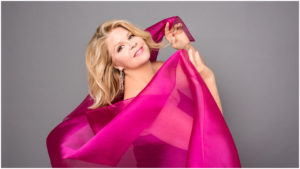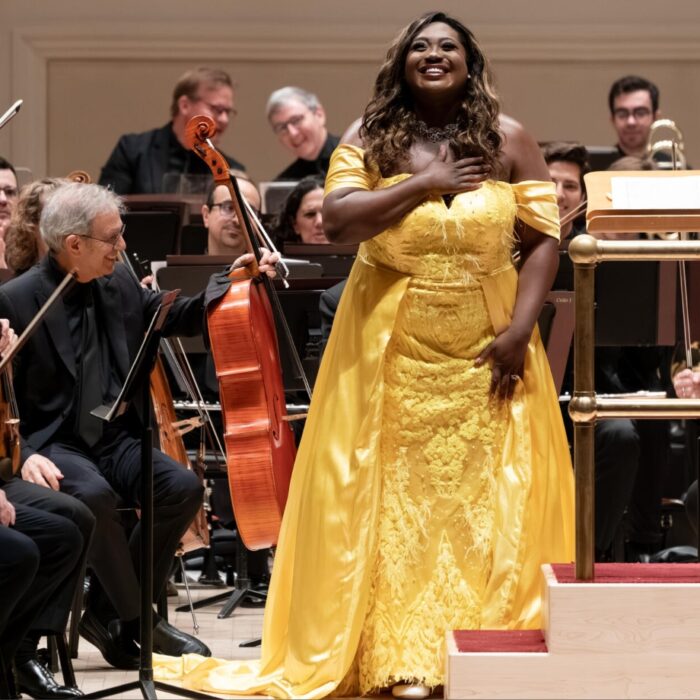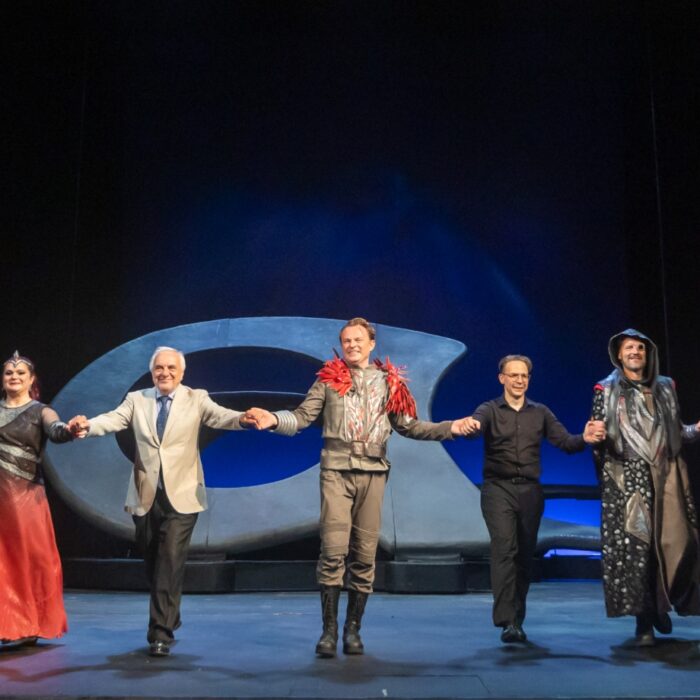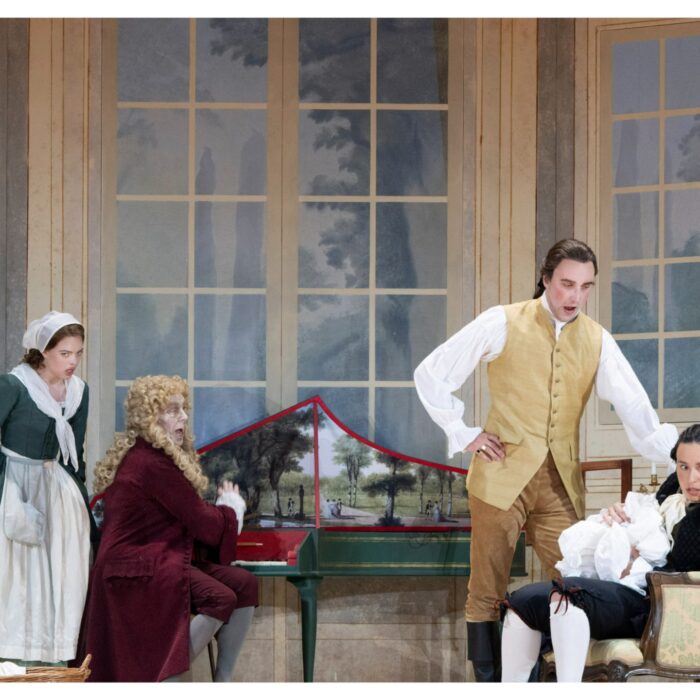
Lincoln Center Great Performers 2020 Review: Susan Graham & Malcolm Martineau
Graham and Martineau Delight with Expansive, Schumann-led Program
By Logan Martell(Photo Credit: Dario Acosta)
February 4, 2020, saw the latest installment of Lincoln Center’s Great Performers series, with the evening’s recital featuring renowned mezzo-soprano Susan Graham, accompanied by Malcolm Martineau. The program, titled “Fauenliebe und –leben: Variations,” took Schumann’s song cycle and fleshed out a fuller narrative, using a breadth of musical works from other composers which spanned eight languages.
Graham recently spoke with OperaWire, sharing her insight on the conception and process behind the recital.
First Meetings
Opening the program was “Seit ich ihn gesehen,” where the meaning and impact of the narrator’s meeting with her beloved was conveyed by Graham’s affectionate, almost-awed approach to the text, with a fresh simplicity added by Martineau’s chordal accompaniment. Exploring the effects of this meeting was the following selection, “The encounter,” from Edvard Grieg’s “Haugtussa, Op. 67, No. 4.”
The transition between the two came smoothly, with Graham continuing the narrator’s infatuated sentiment even as she switched to the Nynorsk text of the piece. This number saw Graham use a wider range to match the narrator’s rising passions, between a soaring close to the phrase “my, how tall you are” and the lower tones which peppered her delivery as she outlined the lovers’ night of passion.
This first chapter of songs was closed by Richard Strauss’ “Since your eyes first looked into mine” from “Seitdem dein Aug’in meines schaute, Op. 17, No. 1.” Here Graham illuminated the succinct, reflective text of von Schack, employing a gorgeously sustained mezzo-forte before bringing the piece to a fuller close.
Praises of Love
The next chapter was opened by Schumann’s “He, the most wonderful of all,” where the jauntier accompaniment was nicely contrasted by the shyer bearing that Graham held as she navigated through the softly praising phrases of the narrator’s rising fantasies.
These feelings were wonderfully escalated in the following piece, “Shall I compare thee to a summer’s day?” John Dankworth’s setting of Shakespeare’s “Sonnet Sonnet No. 18” was treated with sonorous clarity by Graham, even as she took her lines to delicate heights.
The following selection, “Song of Love” from Faure’s “Second Recueil, Op. 27, No. 2,” featured a circling accompaniment which brought out the repetitive, near-obsessive nature of the French text, with phrases such as “J’aime tes yeux, j’aime ton font…j’aime ta voix, j’aime l’etrange grace de tout ce tu dis, etc.”
Giving these feelings a more eloquent expression was the next piece, “Melody” from Swedish composer Ture Rangstrom’s “Fem dikter.” Here the evocative, natural imagery bloomed from the presence of the narrator’s beloved, underscored with heightened arpeggios which settled into chords as the piece was brought to a close.
Promises
The next Schumann piece, “I cannot grasp it, cannot believe it,” saw the narrator’s wildly-running emotions conveyed through staccato phrases, as if unable to finish a thought before starting a new one.
Next was a briefer number, “I love you” from Grieg’s “Hjertets Melodier, Op. 5, No. 3.” Here, the devotion in Hans Christian Andersen’s text was given a tender opening by Graham, before strongly blossoming with her repetitions of “Jeg elsker dig.”
This led into the last selection for this chapter, Faure’s “At the riverside” from “Au bord de l’eau, Op. 9, No. 1.” The almost-somber flowing of the accompaniment was matched as Graham carried this sentiment through the stanzas of timeless love with an enchanting legato.
Wedding Rings
The fourth chapter was opened by Schumann’s “You, ring on my finger,” where Graham addressed the symbol of marriage with great vocal sweetness, bestowing it with precious meaning that she developed further, with each return to the phrase “du ring an meinem finger” being tinged with this growing nuance.
The following piece, Mahler’s “Rhine Legend,” made finely continued the focus on this object as it became the thing which brought the lovers of the text back together. Graham deftly conveyed the sequence of ideas as the ring went from her hand, to the river, and in the belly of a fish arrived at the king’s court, this imaginative sequence being brought to a quick, whimsical close by Graham.
Ending this chapter of the program was Joaquin Turina’s “The two fears,” from “Opema en forma de canciones, Op. 18, No. 4.” The two brief quatrains of the text nicely encompass the paradox of love, wherein a single night can entirely impel a once-fearful heart towards love.
Wedding Nights
The fifth work from Schumann, “Help me, sisters,” carried a faster, rolling energy, matched by Graham’s excited repetitions of phrases like “helft mir…lass mich… streuet ihm,” etc. The bubbly wedding preparations were brought to a rich, measured close by Graham.
Expanding on these upcoming nuptials were two selections “Mother, Mother, do not believe,” and “Let me cling to his chest,” from Schumann’s “Myrten, Op. 25.” The former bore a warm, nostalgic quality, giving way to a seamless transition into the latter piece, where the tender pleading was drawn out endearingly, as heard in her tapering repetition of “laß mich.”
Bringing the first half of the recital to an end was “Everyone is Happy!” from Ravel’s “Cinq melodies populaires grecques.” This number made for a brief, frolicking celebration of the narrator’s wedding to her beloved.
Rest and Repose
For the second half of the program, the concept reversed, with the remaining pieces from “Frauenliebe und –leben” now closing their respective musical chapter.
Opening the sixth chapter was Henri Duparc’s “Phidyle,” where the restful imagery was taken to invocative heights, as heard from Graham’s gossamer repetitions of “Repose o Phidyle,” before she warmly sighed these feelings into affirmation as the accompaniment softly resolved. Following this was “The Hair” from Debussy’s “Les Chansons de Bilitis, No. 2, L..97.” Where the text describes a recalled dream of two lovers becoming more and more intertwined, with Graham using a lower, almost fearful quality to outline these dissolving personal boundaries.
Returning to Schumann was “Sweet friend, you look at me in wonder,” where the opening lingering chords and melodic ideas where matched by Graham’s awed, legato approach; even in instances of rising passion, she stood with an open, vulnerable bearing.
Lullabies
The seventh chapter began with “The baby carafe” from Poulenc’s “La courte paille, FP 178, No. 6.” This lighter number humorously established the theme of children with the carafe’s desire for a child of its own, a wish fulfilled by none other than Merlin.
A lovely contrast came with the following piece, “Lullaby” from Tchaikovsky’s “Six Romances, Op. 16, No. 1,” where the darker, rolling accompaniment underscored the motherly text, with Graham using a enchanting mezzo-piano to open the stanzas.
Reconciling the whimsy of the first piece with the sentiment of the second was Strauss’ “Cradle Song.” The softly-rocking feel of the accompaniment’s duple meter was joined by Graham’s maternal timbre, a quality that delicately peaked with her phrase “Rühre dich nicht!”
Closing this chapter was Schumann’s “On my heart, on my breast.” The highly affectionate text of a mother nursing her child saw Graham utilize a smaller, more focused delivery that nicely conveyed addressing and infant in one’s arms.”
Loss
The eighth chapter of the program, dealing with grief and loss, was fittingly opened by Berlioz’s “Absence” from “Les nuits d’ete, Op. 7, No. 4.” This number opened with a rolling, bereaved sonority from Graham, with the heavier melody of the accompaniment shifting to repeated chords.
These feelings escalated with “The Lady of Sorrows” from Enrique Granados Campina’s “Tonadillas en un estilo antiguo, H. 136.” Here the declamatory phrases scorched with pain, underscored by the gritty, forte chords which ultimately left the audience hanging in the darker musical atmosphere. Following this was “How should I your true love know” from Roger Quilter’s “Four Shakespeare Songs, Op. 30, No. 3.” Here Graham used a more measured sorrow which, while lacking the particular madness of Ophelia, rang with disconsolate beauty.
Bringing an end to the program was Schumann’s “Now have you cause me my first pain,” where Graham displayed a lower, haunting technique in outlining the narrator’s crushed heart.
This evening saw one encore from Graham and Martineau, “Hello Young Lovers” from Rodgers and Hammerstein’s “The King and I.” This selection was introduced by Graham as being thought of as chapter 9 to the program’s overarching Schumann cycle.
In lovely, nostalgic shades, Graham conveyed the timeless aspect of love, relating them with a breathtaking warmth that made for a splendid end to the recital.


